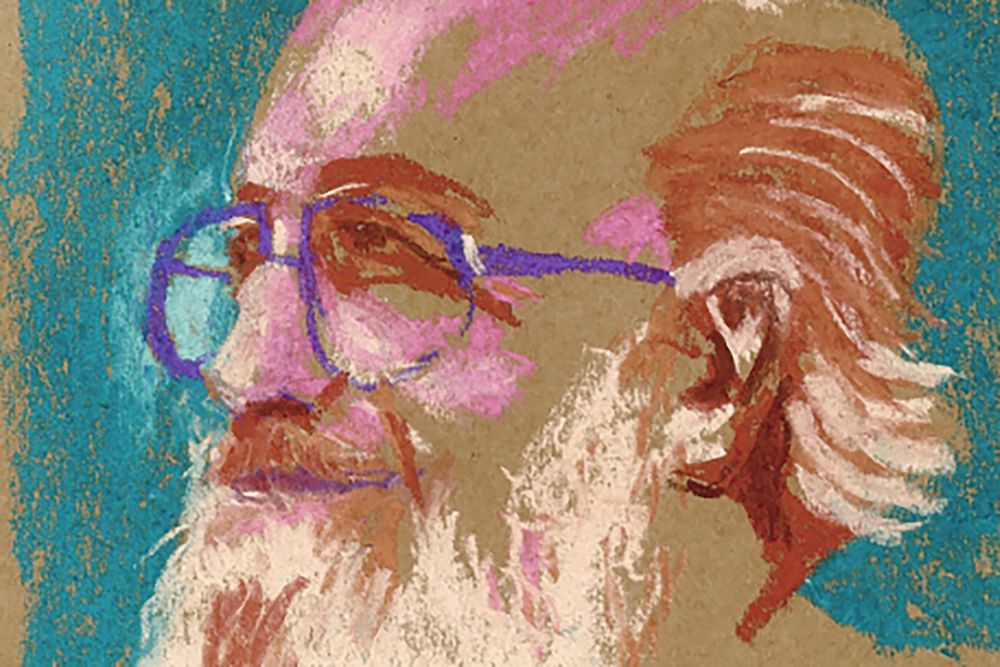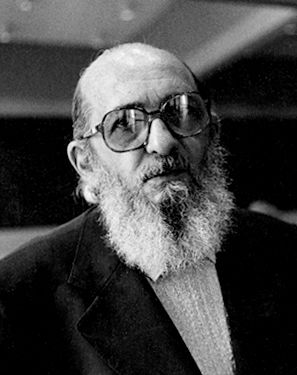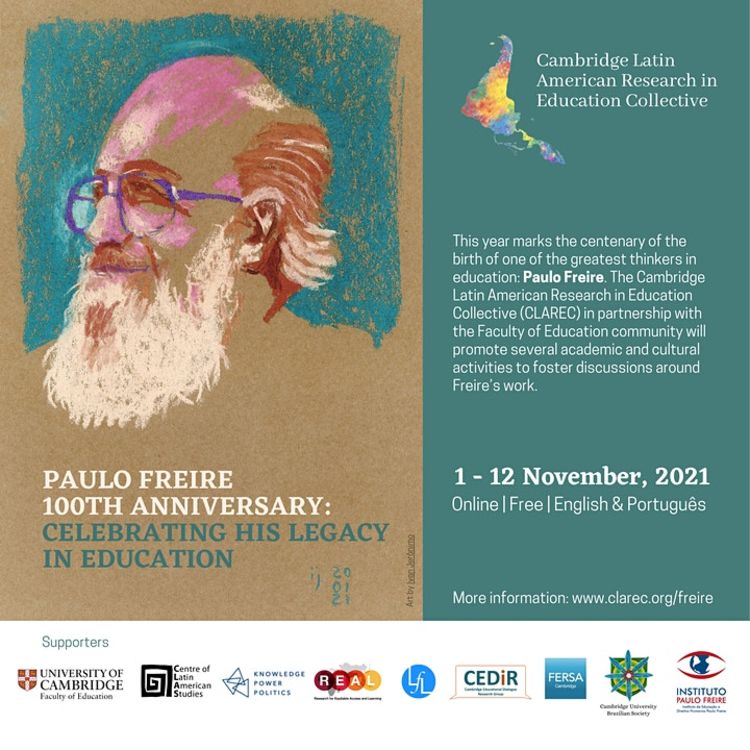

Paulo Freire 100
Fortnight of free events celebrating founding figure in critical pedagogy

The legacy of Paulo Freire – a pivotal, transformative figure in global education whose centenary falls this year – is being celebrated in a series of free events at the University of Cambridge.
Starting on 1 November, the University’s Faculty of Education will be hosting a fortnight of discussions, debates and artistic presentations inspired by Freire’s philosophy and work. The programme features an international cast of eminent scholars from education and the wider social sciences, who together will examine Freire’s ideas about education, economics, politics and social justice, and their continued impact on these fields and beyond.

Freire, who was born in Recife, Brazil, in 1921 and died in 1997, is widely regarded as one of the most influential educators of all time. He is one of the central, founding figures associated with critical pedagogy: a philosophy of education which holds that teaching and learning cannot be detached from politics, democracy and social justice.
Guided by his best-known work, Pedagogy of the Oppressed, critical pedagogy highlights the importance of education in awakening the individual’s ability to think critically and question the power structures that surround them. Conversely, Freire was critical of what he described as the ‘banking model’ of education, in which students are positioned as passive listeners into whom knowledge is ‘deposited’ by a teacher. He argued that this reinforces political contexts in which the poor and disadvantaged simply accept the authority of those in power.
"Freire’s importance resonates far beyond Brazil. Many of the concepts he developed still shape education around the world."
Alexandre da Trindade
His ideas have shaped education systems and inspired practitioners, philosophers and activists around the world – especially those in former colonised countries. More widely, they continue to influence thinkers and practitioners involved in community development, health, communications, and many other fields. In 2016, an analysis of social science works available on Google Scholar identified Pedagogy of the Oppressed as the third most-cited such text in the world – ahead of landmark texts by Marx, Foucault and Bourdieu, among others.
The 100th anniversary programme runs from 1 to 12 November and has been organised by the Cambridge Latin American Research in Education Collective (CLAREC) in partnership with the Faculty of Education, with support from a wide range of academic and non-academic groups and social movements.

It will open with an introduction to Freire’s legacy presented by Professor Ana Maria Saul (Pontifical Catholic University of São Paulo) who worked with Freire when he was Municipal Secretary for Education in the city of São Paulo in the 1980s and 90s; and Professor Carlos Alberto Torres, a distinguished political sociologist, one of the founders of the Paulo Freire Institute, and his principal biographer.
Further events will examine the connections between Freire’s ideas and popular education youth and adult education, climate education, the democratisation of education internationally; and decolonisation projects in language education.
There will also be discussions about his legacy in Latin America and Brazil specifically. In his home country, Freire remains both a household name and the object of a right-wing backlash led by President Jair Bolsonaro, who has vowed to purge his ideas from the country’s schools. In this context, one event will ask: “Why is Paulo Freire’s spectre haunting the Brazilian far right?”

Alexandre da Trindade, a doctoral student at the Faculty and one of the organisers, said: “Freire’s importance resonates far beyond Brazil and many of the concepts that he developed still shape education around the world. It feels right to mark his centenary with a series of events exploring his arguments with as wide a community as we can reach. In keeping with Freire’s own philosophy, we hope participants will feel inspired to undertake deeper critical thinking of their own, and galvanised into seeking to positively transform different contexts of oppression, wherever they may encounter them.”
The full programme of events to mark Paulo Freire’s 100th anniversary is available on the CLAREC website with booking available through Eventbrite. Written and visual materials, reflecting on the events and activities will be published in subsequent weeks, alongside abstracts presented at a student conference which is taking place as part of the wider programme. For further information, visit: https://clarec.org/freire/
Additional images:
Paulo Freire in 1977. Slobodan Dimitrov. Reproduced under a Creative Commons Licence: Attribution-ShareAlike 3.0 Unported (CC BY-SA 3.0). Via Wikimedia Commons.
'Pedagogy of the Oppressed' (1968 Spanish edition). Via Wikimedia Commons.